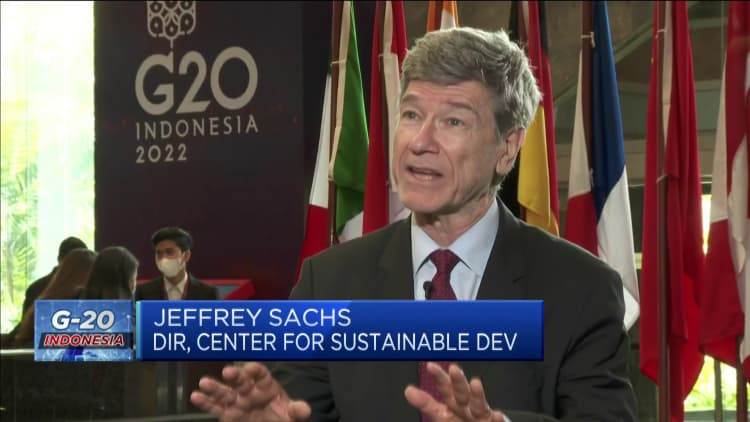
Stocks fell to start the week as investors took a pause from last week's big rally and digested a slew of corporate and economic news.
The Dow Jones Industrial Average fell 211.16 points, or 0.6%, to 33,536.70. The S&P 500 was lower by 0.89% to 3,957.25, and the tech-heavy Nasdaq Composite dropped 1.12% to 11,196.22. Trading was choppy throughout the day, with the market struggling for direction throughout the session and then sliding into the close.
"This week marks a bit of an information lull for markets as we're past the brunt of third quarter earnings season, past the end-of-month/start-of-month economic data deluge, the busy holiday season is about to start, and we're a mere seven weeks away from 2023," said Goldman Sachs' Chris Hussey.
"But on the back of last Thursday's encouraging CPI release, markets are contemplating the macro outlook, the possibility that inflation may have finally peaked, the path for rates from here, as well as the possibility of a recession," he said.
Earlier in the day, the major stock indexes came off their lows after Federal Reserve Vice Chair Lael Brainard indicated the central bank could soon slow the pace of its interest rate increases, providing some comfort to the market.
Brainard's remarks came after Fed Governor Christopher Waller said Sunday the endpoint for the federal funds rate is "still a ways out there." His remarks initially weighed on the market heading into the week.
Loading chart...
Ahead of Brainard's comments, stocks took a big fall following reports that Amazon will lay off about 10,000 employees as early as this week. Around the same time, a Fed survey showed consumers' inflation expectations for the year ahead rose, weighing further on sentiment.
The S&P 500 rallied 5.9% to finish the previous week, its best weekly advance since June. Investors cheered a lighter-than-expected inflation reading, betting that the central bank would soon slow its aggressive tightening campaign.
The third-quarter earnings season is set to continue, with a heavy emphasis on retail. Walmart, Home Depot, Target, Lowe's, Macy's and Kohl's are all slated to post numbers this week.



